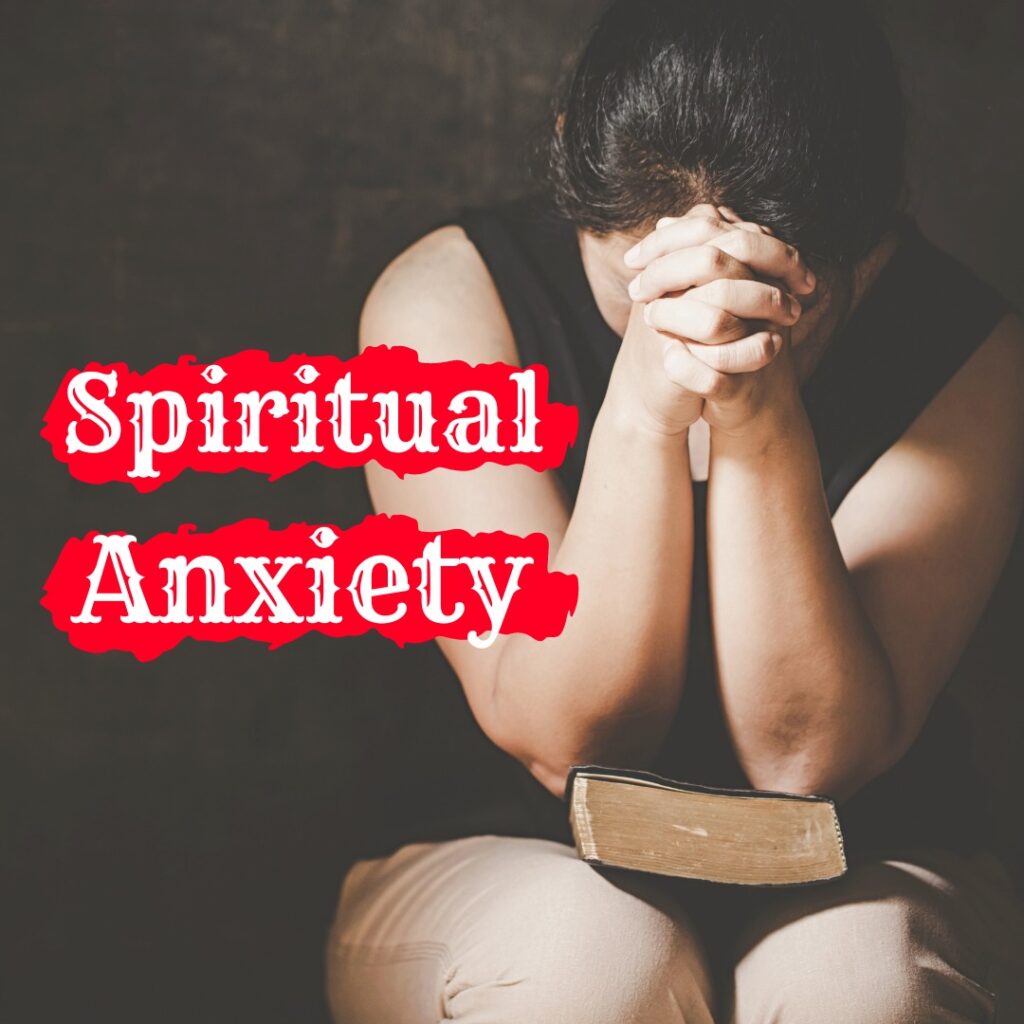Introduction
Spiritual anxiety also known as “spiritual distress” or “spiritual unease” is a concept within Islamic spirituality that refers to a state of inner turmoil or unease related to one’s relationship with Allah (God), one’s faith, and one’s spiritual journey. It is a complex emotional and psychological condition that can affect individuals at various stages of their spiritual development. Here’s a detailed note on spiritual anxiety from an Islamic perspective:
1. Understanding Spritual Anxiety
Spiritual anxiety is a multifaceted experience that can manifest in different ways, such as doubt, fear, guilt, or a sense of distance from Allah. It often arises from a sense of inadequacy in one’s faith, concerns about sins, unanswered prayers, or a feeling of being spiritually disconnected.
2. Causes of Spiritual Anxiety
Sins and transgressions Committing sins or straying from the path of righteousness can lead to feelings of guilt and anxiety. Human beings are born with a thing called ‘nafs’ in Arabic, which is responsible for all the bad deeds done by some one which is then led to spiritual anxiety. Therefore, every human except the Messengers of Almighty Allah are guilty and have done sins and bad deeds in their lives.
Doubt and skepticism Questioning one’s faith or experiencing doubts about religious beliefs can be distressing. Basic believes of religion should not be questioned, it is something a believer should believe without asking. There are hundreds of thousands of questions that sometime come to our mind, if we talk about it or try to find out the answers can lead us to wrong way. And can cause the anxiety. Unanswered prayers When one’s supplications seem to go unanswered, it may lead to feelings of abandonment or confusion. Our sins sometime are the reasons due to which our supplications seem to be unanswered.
Comparisons and competition Constantly comparing one’s spirituality to others or feeling the need to compete can lead to anxiety.Excessive self-criticism Being overly critical of one’s spiritual progress can create a sense of inadequacy.
3. Coping with Spiritual Anxiety
Seeking knowledge Islamic knowledge and understanding can help alleviate doubts and uncertainties. Learning about the faith and its teachings can strengthen one’s belief. Seeking knowledge is most important in Islam.
Hadith (Sahih al-Bukhari) The Prophet Muhammad (peace be upon him) said, “Seeking knowledge is an obligation upon every Muslim.”
Seeking forgiveness Turning to Allah in repentance (Tawbah) is a fundamental aspect of Islam. Admitting one’s mistakes and sincerely seeking forgiveness can provide solace. Rise in the late night, perform prayer and cry Infront of Allah, seek the forgiveness for your sins and do tawbah that you will never mislead your way.
Quran (Surah Az-Zumar, 39:53)
“Say, ‘O My servants who have transgressed against themselves [by sinning], do not despair of the mercy of Allah. Indeed, Allah forgives all sins. Indeed, it is He who is the Forgiving, the Merciful.'”
Hadith (Sahih al-Bukhari): The Prophet Muhammad (peace be upon him) said, “Allah, the Exalted, says, ‘O son of Adam, so long as you call upon Me and ask of Me, I shall forgive you for what you have done, and I shall not mind. O son of Adam, were your sins to reach the clouds of the sky and you would then ask forgiveness of Me, I would forgive you.'”
Prayer and supplication (Du’a): Engaging in regular acts of worship, including prayer and making supplications, can bring comfort and strengthen one’s connection with Allah.
Quran (Surah Adh-Dhariyat, 51:56)
“And I did not create the jinn and mankind except to worship Me.”
Hadith (Sahih al-Bukhari): The Prophet Muhammad (peace be upon him) said, “Actions are but by intention, and every man shall have only that which he intended.”
Community support: Discussing one’s concerns with knowledgeable and empathetic individuals, such as scholars or trusted friends, can be beneficial.
Quran (Surah Al-Asr, 103:3)
“And enjoin upon one another the truth and enjoin upon one another patience.”
Hadith (Sahih al-Bukhari): The Prophet Muhammad (peace be upon him) said, “A believer to another believer is like a building whose different parts enforce each other.”
Spiritual practices Engaging in acts of worship, such as reading the Quran, performing dhikr, and engaging in charitable deeds can help restore Spiritual balance.
1. Prayer (Salat)
Quran (Surah Al-Baqarah, 2:45): “And seek help through patience and prayer, and indeed, it is difficult except for the humbly submissive [to Allah].”
2. Charity (Zakat)
Quran (Surah Al-Baqarah, 2:267) “O you who have believed, spend from the good things which you have earned and from that which We have produced for you from the earth.”
3. Fasting (Sawm)
Hadith (Sahih al-Bukhari): The Prophet Muhammad (peace be upon him) said, “Fasting is a shield; when one of you is fasting, he should neither behave in an obscene manner nor foolishly.”
4. Recitation of Quran and Dhikr (Remembrance of Allah)
Hadith (Sahih al-Bukhari):The Prophet Muhammad (peace be upon him) said, “The one who is proficient in the recitation of the Quran will be with the obedient, noble, and righteous scribes (angels), and the one who recites the Quran and stumbles while reading it and finds it difficult, will have a double reward.”
Self-compassion: Being compassionate and forgiving toward oneself is essential in overcoming spiritual anxiety. Remember that Allah is the Most Merciful.
Quran (Surah Al-Baqarah, 2:286): “Allah does not burden a soul beyond that it can bear.”
4. The Role of Faith and Trust
Islam emphasizes the importance of trust (tawakkul) in Allah’s plan. Believers are encouraged to have faith that Allah knows what is best and that difficulties are part of a larger divine plan. Building a strong relationship with Allah through regular worship, prayer, and seeking knowledge can enhance one’strust in Him.
Quran (Surah At-Tawbah, 9:51): “Say, ‘Never will we be struck except by what Allah has decreed for us; He is our protector.’ And upon Allah let the believers rely.”
Hadith (Sahih al-Bukhari): The Prophet Muhammad (peace be upon him) said, “If you were to rely upon Allah with therequired reliance, then He would provide for you just as a bird is provided for.
It goes out in the morning empty, and returns full.”
5. Seeking Professional Help
In cases where spiritual anxiety severely impacts one’s mental health and daily life, seeking professional help, such as counseling or therapy, is encouraged. Islamic scholars and imams can also provide guidance.
Conclusion
In conclusion, The journey of faith is not always a smooth path, and spiritual anxiety can be a challenging companion along the way. However, as we’ve explored in this blog, Islam offers a wealth of guidance from the Quran and Hadith to help navigate these turbulent waters.
Remember that spiritual anxiety is a natural part of the human experience, and it is through our struggles that we can strengthen our faith.

